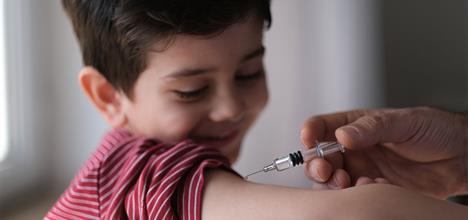What you need to understand is that, at times, phobia comes along with Generalized Anxiety Disorder (GAD). Although the precise origin of GAD is not entirely understood, it’s likely that a number of different variables interact to contribute to the disorder. The disorder keeps one constantly worried, and in fear. In your case, GAD heightens when your phobia is triggered.
There are a few tips I want you to know that will help you with your fear while getting your blood drawn or when you have to get a vaccine. Since you feel like you might pass out, it’s better to get the procedure done lying down or in an inclined chair. It’s also a good idea to not look at the needle. You can distract yourself with something else. Maybe use your phone or take someone along with you to keep you wrapped up in a conversation. Deep-breathing techniques help during any process that provokes anxiety. Learn the process at home and practice before you use it during the procedure. Believe in yourself then you can overcome this fear. Always inform the medical professional about your phobia before they get ready with a syringe. Now, for the treatment, phobias are usually treated with exposure therapy. It’s the process where you gradually face your fear. Expose yourself with a photo of needles first. It might be triggering at first, but give yourself some time to get comfortable with the process. You don’t have to do it alone. Keep someone beside you in case you need them to calm you down. After you are well-adjusted with the picture, move on to an actual needle. You can ask someone to hold it for you, and gradually move on to holding it yourself. You can visit a professional if you think you need their help. Secondly, it’s always a good idea for you to visit a psychiatrist when you feel anxious because they will help you out through Cognitive Behavioral Therapy (CBT). It’s a talking therapy that can help you manage your problems by changing the way you think and behave. It’s most commonly used to treat anxiety and depression. Another way to deal with such moments is to take anxiolytics, while going on a vaccination or when you want to have blood withdrawn. Benzodiazepines are a type of sedative medication. This means they slow down the body and brain’s functions. They can help with anxiety. For that, you need to meet a psychiatrist to know about the doses. I hope this helps. If it doesn’t it’s always good to schedule an appointment with a professional.











